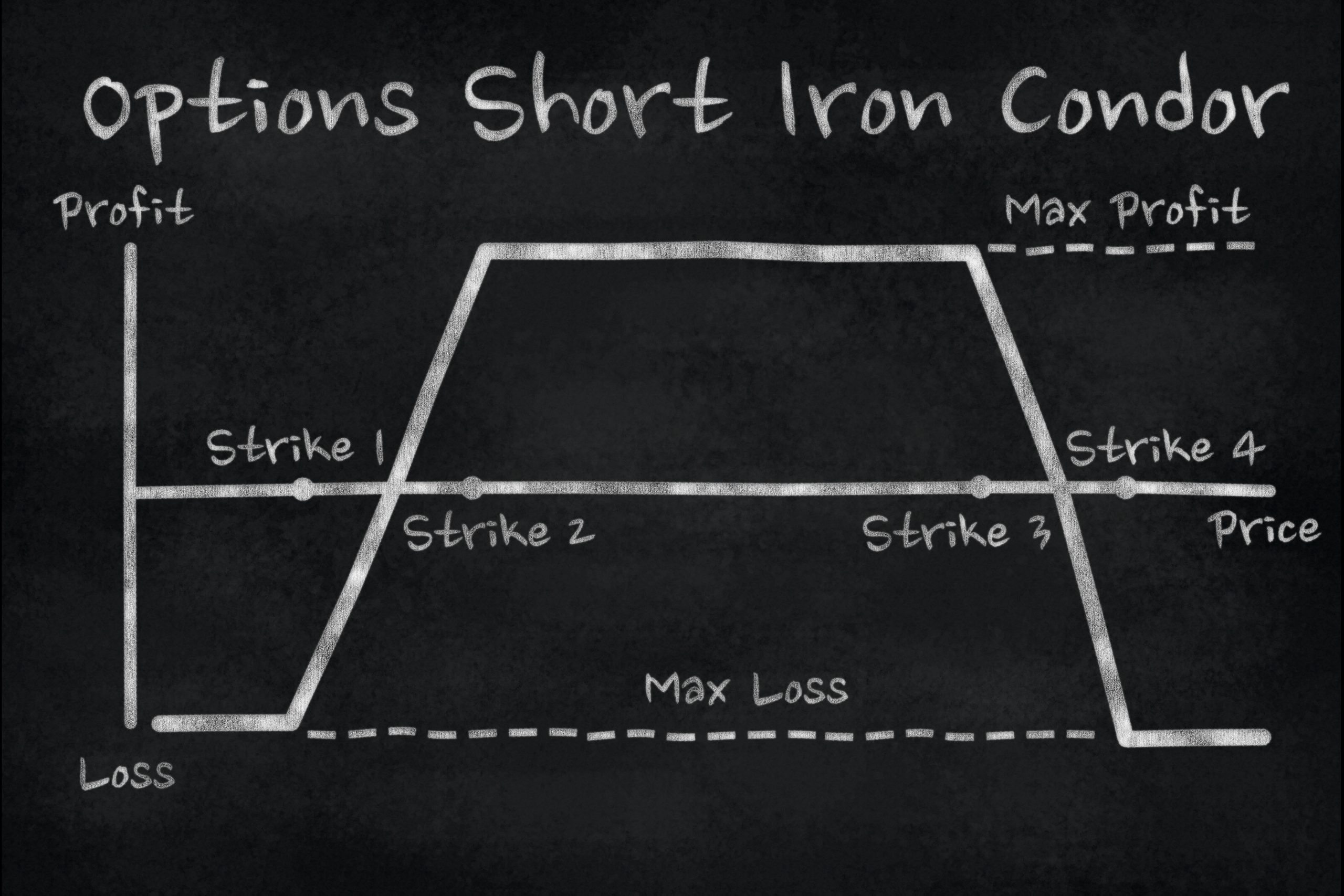Managing Losers

Great trading requires great ideas. But generating those ideas isn’t the end of the trading life cycle—it’s the beginning.
To consistently book profits, traders must pair good ideas with effective trade management practices. The latter includes everything from trade deployment to risk management and trade closure.
The most difficult decision-making revolves around when to close a trade. Should winners be allowed to run, building on momentum? Should losers be cut off early, before they get out of hand?
The tastytrade financial network has conducted extensive research on trade management and provides valuable insight for traders looking to refine their approach.
One good starting point in trade management is adopting a disciplined, mechanical approach.
This consistent, objective thinking can help avoid errors of a one-off approach steeped in emotion. Traders can lean on guidelines listed below to build a more mechanical approach.
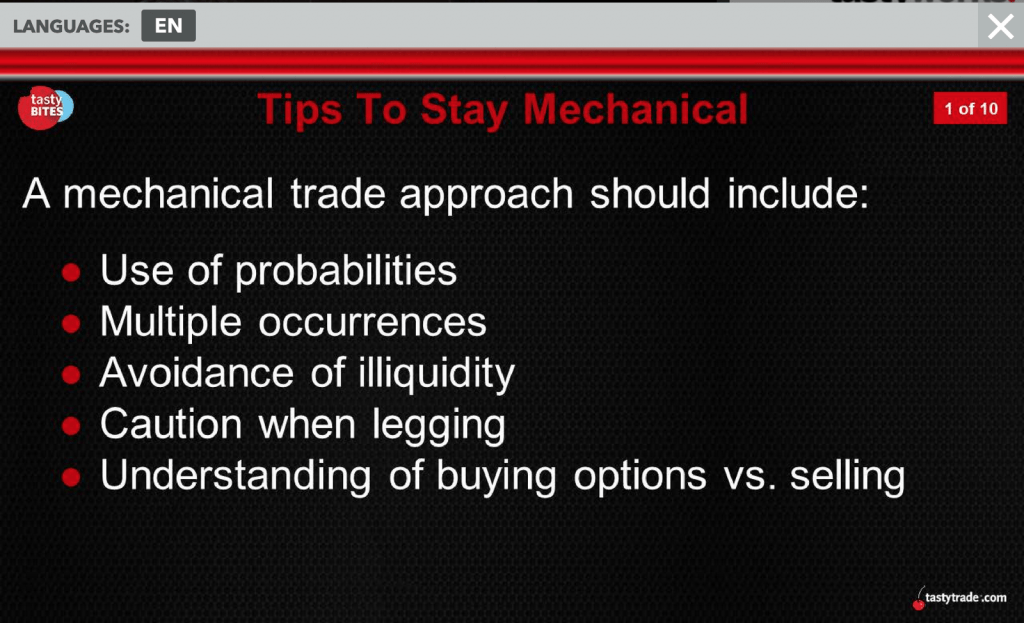
Besides the above, traders can use a wide range of trade management tactics to optimize their approach.
Prominent philosophies on trade management include managing trades based on profit and loss (P/L) and managing based on time. At tastytrade these approaches are often referred to as “managing winners/losers” and “managing early.”
At its core, managing winners/losers is about closing positions while they are ahead or before they get too far behind—and doing so consistently and mechanically.
Well-known approaches to managing winners include closing strangles at 50% of the credit received or closing straddles at 25% of the credit received. With the former, if one sold a strangle for $2.00, the strategy would call for closing the position once the market value of the strangle had decayed to $1.00.
The graphic below highlights some additional guidelines for building an approach to managing winners.
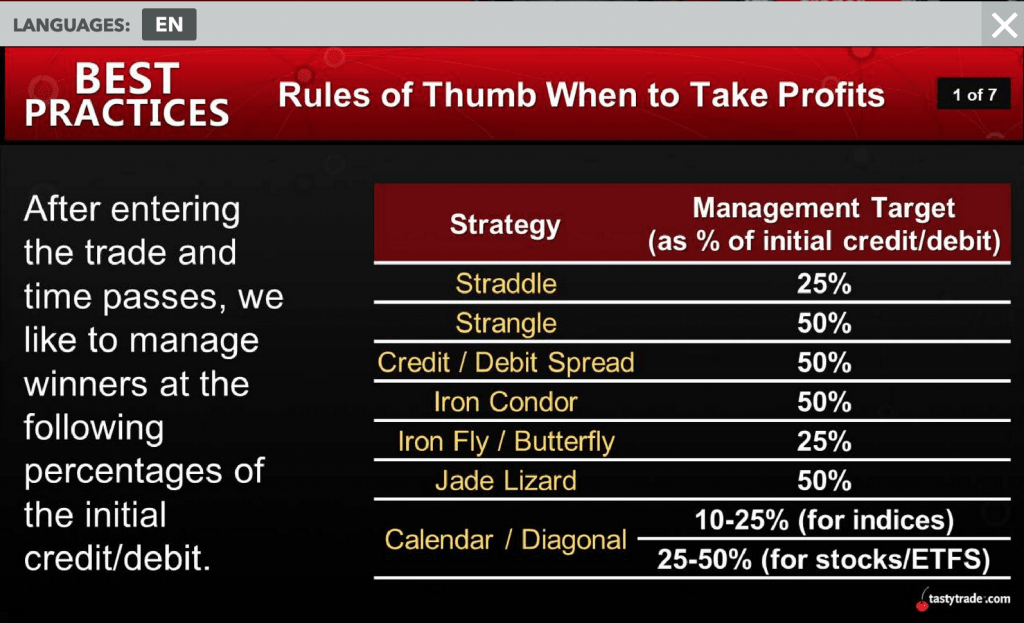
Managing losers gets trickier.
Research by tastytrade suggests that managing losers can reduce losses and the volatility of portfolio P/L. However, managing losers also cuts into the theoretical probability of profit (POP).
That’s because losing options trades, especially of the short premium variety, have a tendency to fluctuate between profit and loss early in the expiration cycle. Research has shown that “patience” can be key with such trades, and that holding tested positions through difficult moments can often pay off, as illustrated below.
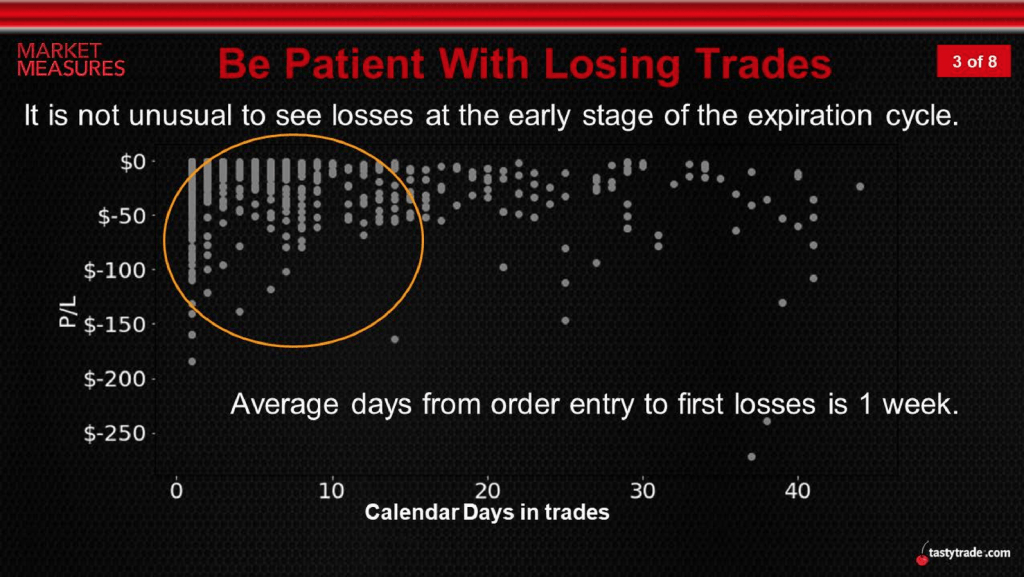
If managing winners/losers doesn’t fit one’s approach, investors and traders can also manage “early” by closing positions systematically at predetermined times.
Traders using this approach typically close positions after a certain number of trading days have elapsed or with a certain number of days left until expiration. At tastytrade, “managing early” generally refers to the latter philosophy—closing trades based on the number of days left until expiration (DTE, aka days-to-expiration).
Managing early is predicated upon the fact that the P/L per day tends to decrease as positions get closer to expiration, as shown below.
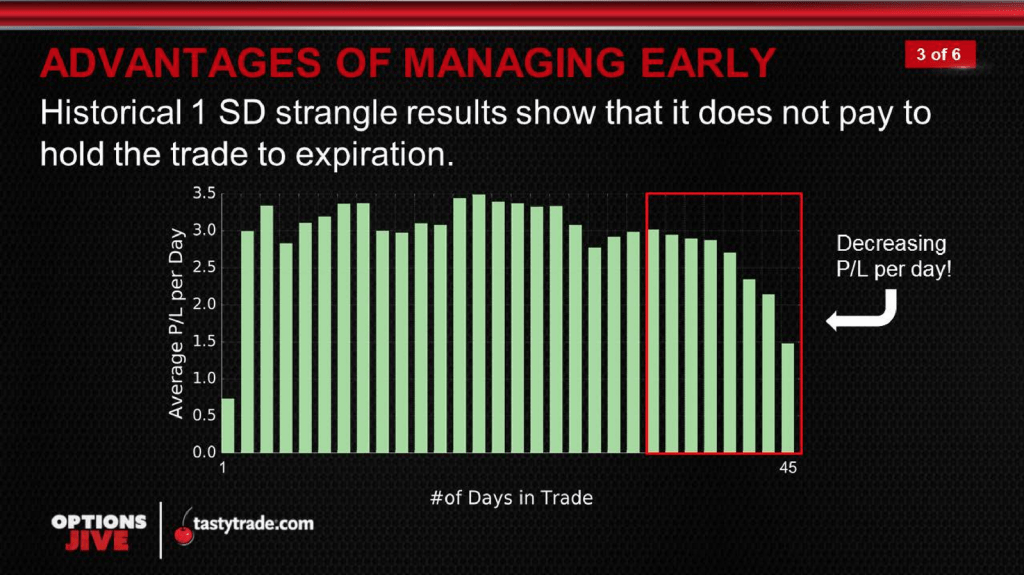
Managing early may be attractive to traders seeking the following benefits in their trade management framework:
- Reduced overall risk
- Potential to maximize daily P/L
- Reduced outlier risk
- Faster redeployment of capital
- Increased number of occurrences
Detailed information on the two trade management philosophies—managing winners/losers and managing early is available through the links below:
One final consideration is that adjusting one’s trade management approach based on the trading environment may be prudent.
Two tastytrade market studies indicate that managing winners/losers tends to be more attractive in bullish, low-volatility markets, whereas managing early tends to be optimal in highly volatile, unpredictable markets.
Given the importance of this information, readers may want to review the research in greater detail when scheduling allows:
- Market Measures: Trade Management in Stable and Volatile Markets
- Market Measures: Managing Winners and Managing Earlier Comparison
“Sage Anderson” is a pseudonym for a contributor who has traded equity derivatives and managed volatility-based portfolios as a prop trading firm employee. He is not an employee of Luckbox, tastytrade or any affiliated company. Readers may direct questions about this blog post, or any other trading-related subject, to support@luckboxmagazine.com.




